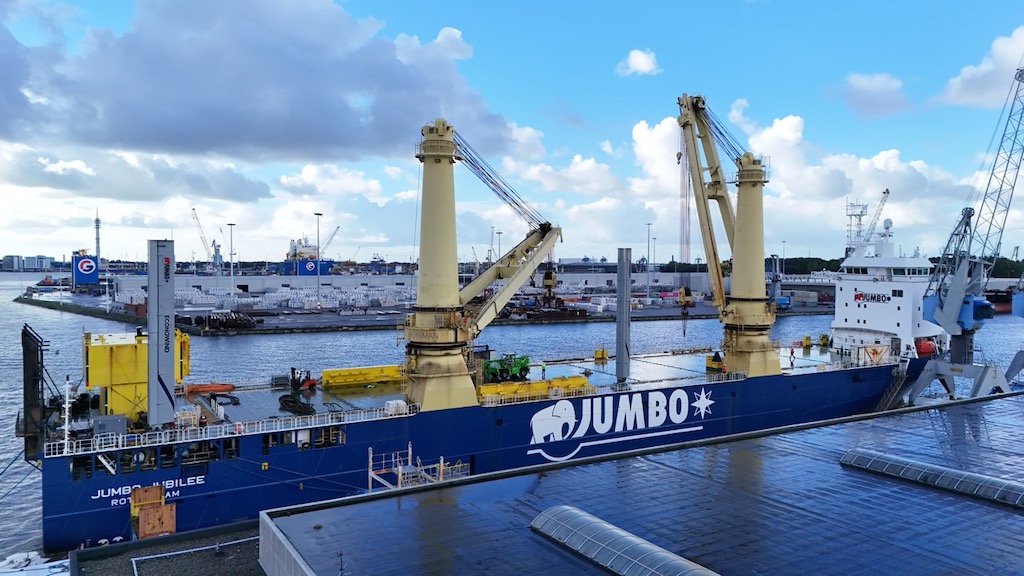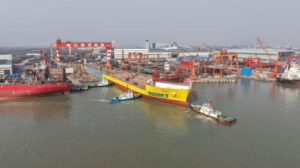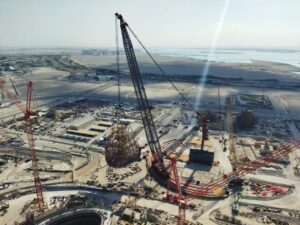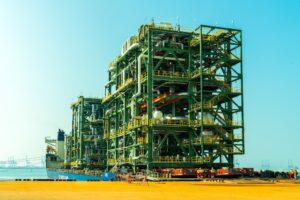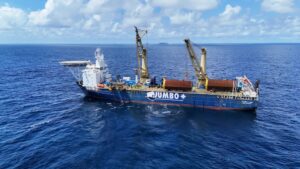Jumbo has successfully installed two mechanical sails on its Heavy Lift Vessel (HLV) Jumbo Jubilee, as part of its ongoing efforts to improve fuel efficiency and reduce carbon emissions. This wind-assisted ship propulsion (WASP) system is the latest in a series of eco-friendly technologies integrated into the vessel to enhance sustainability.
Daan Kornneef, CEO of Jumbo Maritime, emphasized the company’s commitment to sustainable shipping: “At Jumbo, every step towards sustainability matters. The installation of these mechanical sails on Jumbo Jubileeshowcases our dedication to decarbonising the industry. While there’s more work ahead, this initiative brings us closer to a greener maritime future.”
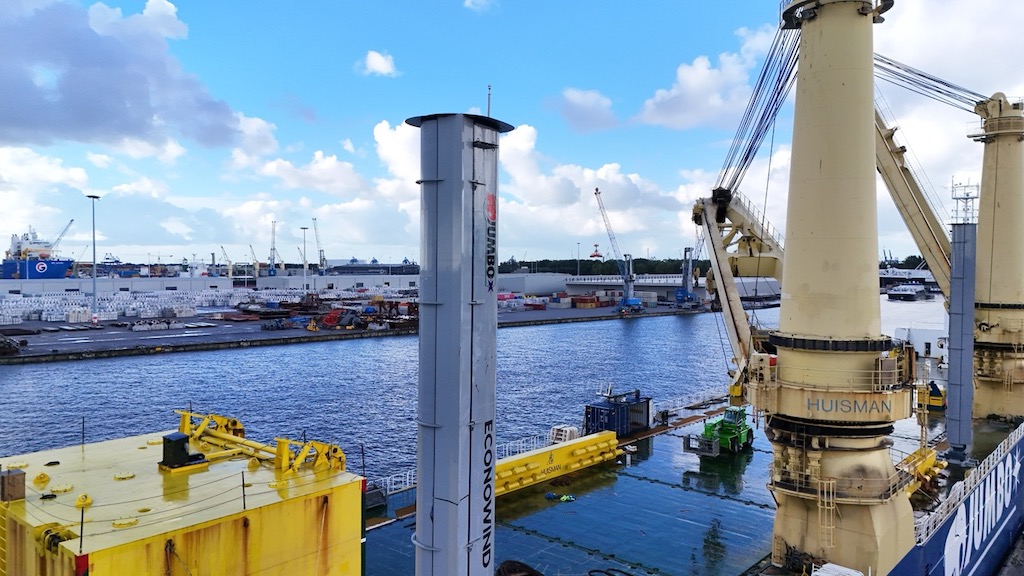
Jumbo employs a unique strategy by combining multiple fuel-saving technologies on a single vessel, allowing the company to measure each technology’s impact. Previous upgrades to Jumbo Jubilee include an advanced propeller coating, an AI-powered anti-fouling monitoring system, and an eco-control system. The newly installed Econowind ventofoils will now be tested for their impact on fuel efficiency.
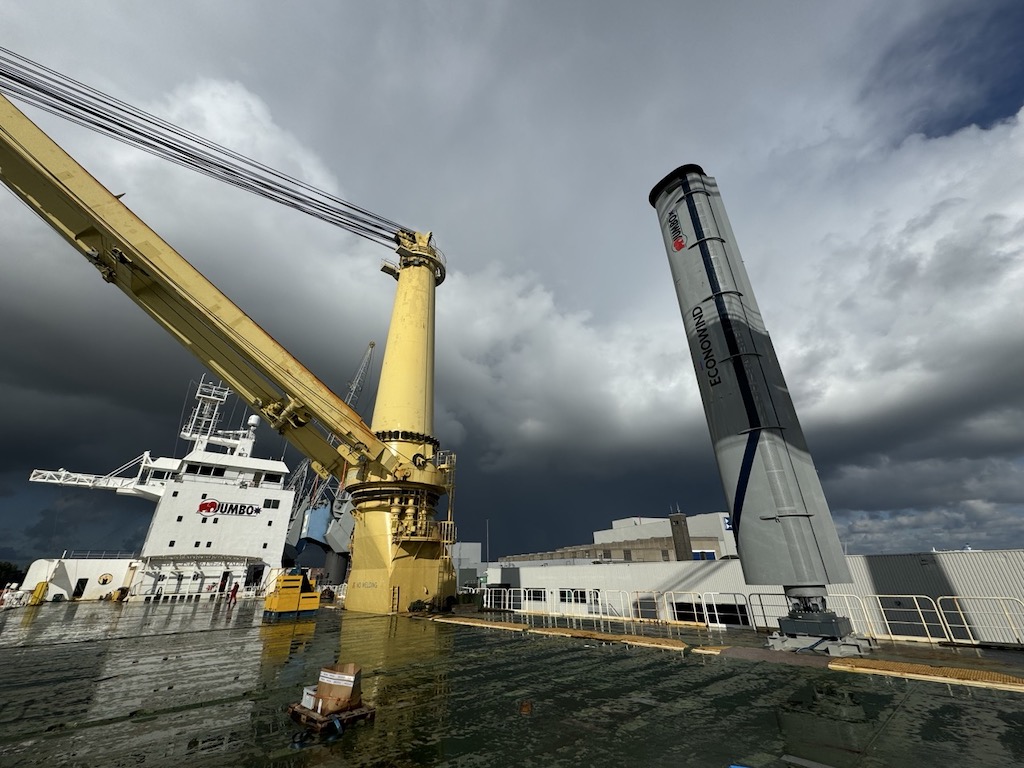
Jumbo’s Technical Manager, Andres Cassanova, explained the significance of the mechanical sails: “These sails will provide valuable data on real-world fuel savings, despite not being fully optimized for our vessel type. Their compact design makes them ideal for heavy lift ships, where space is limited for project cargo.”
The sails are mounted on a custom frame, engineered in-house by Jumbo’s structural engineer Estelle Bongers, allowing them to be moved or transferred between vessels when needed.
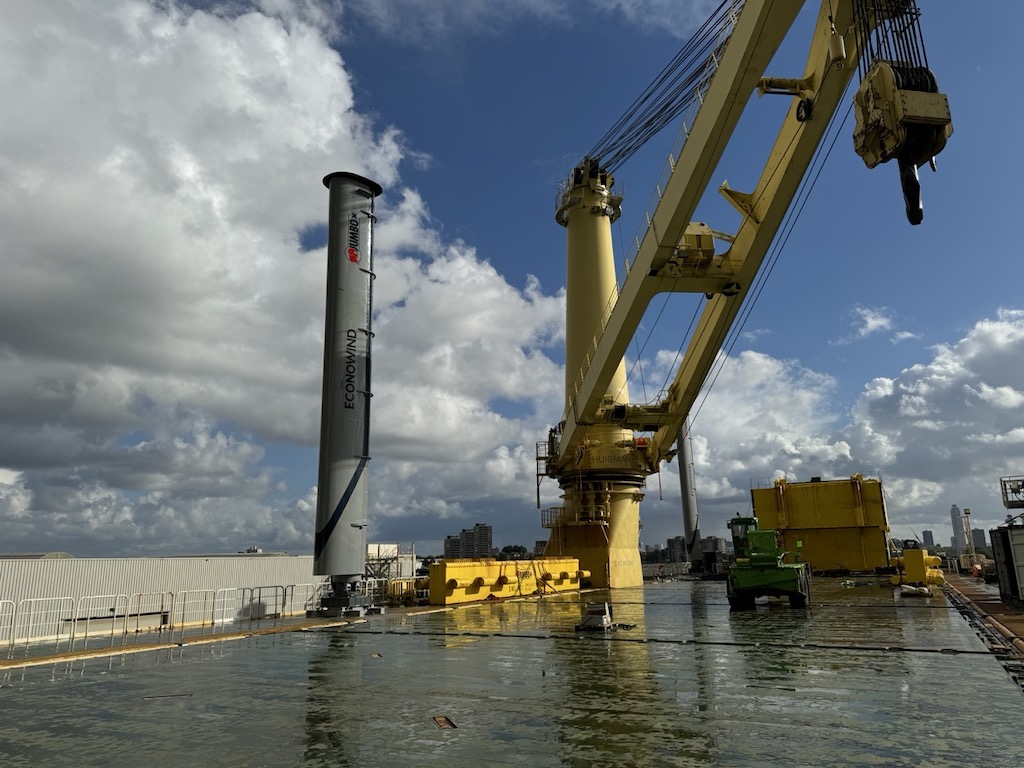
The mechanical sails complement existing fuel-saving measures on the vessel, such as an AI-powered anti-fouling monitoring system. This system tracks vessel speed, sea temperature, and environmental conditions, predicting potential fouling risks to enable pre-emptive maintenance. Additionally, Jumbo Jubilee is equipped with an eco-control system, functioning like intelligent cruise control to optimize fuel consumption and performance.
Technical Superintendent Patrick Feddes highlighted the importance of teamwork in reducing the environmental impact: “Sustainability is a team effort between those on board and on shore. While technology is essential, the collaboration across departments drives energy savings.”


